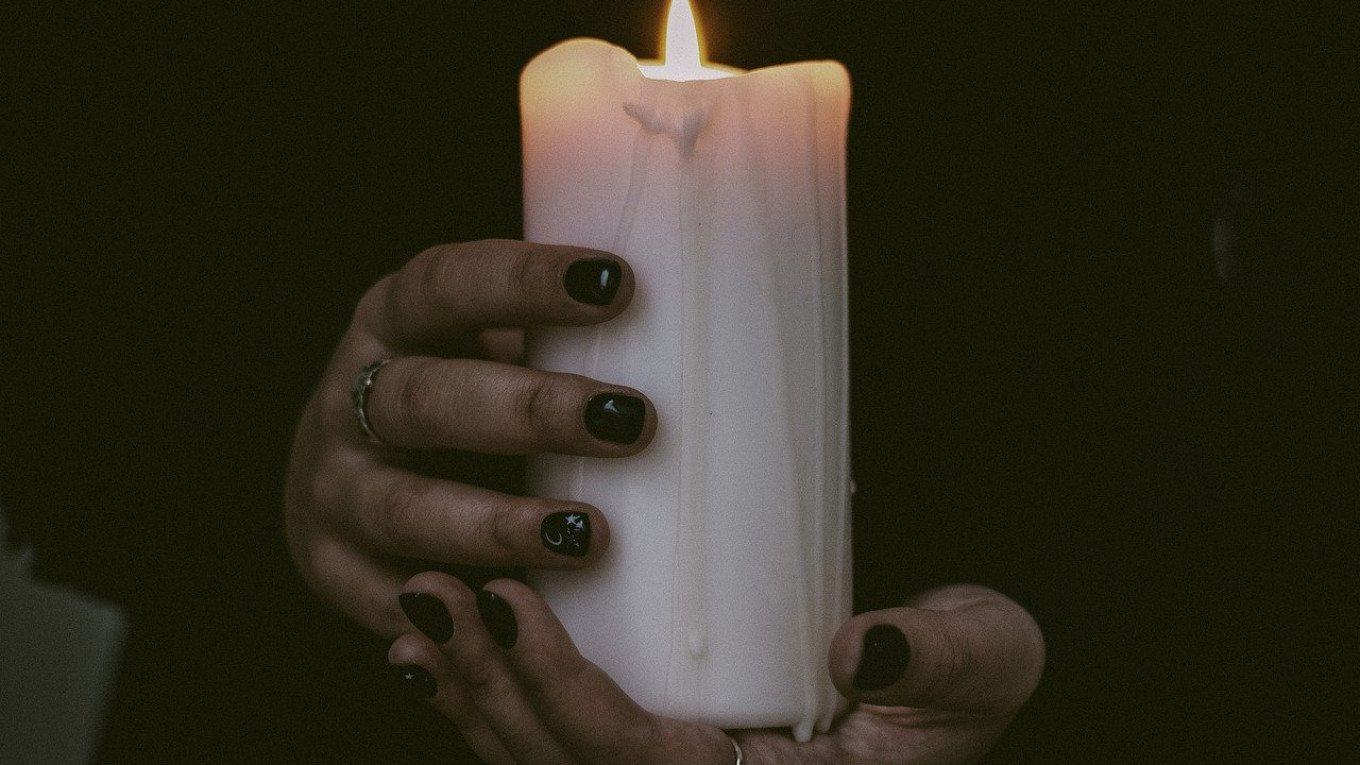For millions of people around the world who dabble in the occult, Halloween is one of the most important — and fun — holidays of the year.
But while younger Russians might wear costumes and go to Halloween parties today, it’s not a traditional or widespread holiday for much of the country.
Despite the lack of Halloween festivities, witchcraft in Russia is growing in popularity, blending influences from Slavic paganism, modern paganism and Western magic.
Today’s Russian witches give tarot readings, practice numerology, craft candles and amulets, and create incantations and folk remedies. And on Oct. 31, many will celebrate Samhain, an ancient Gaelic festival believed to be a time when the boundaries between the spirit world and the human world are more easily crossed.
“What we now call practical magic in Russia is a bizarre fusion of Russian village magic, the witchcraft that came from Europe which works with prayers, rituals and spells, reinterpreted practices of modern paganism and many other traditions,” says Irina Agafonova, owner and founder of the Ved’mino Schastiye (Happywitch Magic Store) chain of magic shops that has locations in six Russian cities. “All of these systems are combined in practice, because at its heart lies magic, which cannot be labeled — the ability to awaken in oneself and interact directly with the delicate spirit of the world.”
The most popular practices among Ved’mino Schastiye’s clientele are the simple, everyday cleansing and spellcasting techniques that only require the burning of candles or herbs. Tarot has also become immensely popular in recent years, Agafonova says, calling its aesthetically pleasing symbology “a primer and the very first experience of an archetypal interpretation of life” for many newcomers.
For Lida, a practicing witch and self-described anthropologist of witchcraft from the southern Russian city of Krasnodar, witchcraft has been a lifelong pursuit, first catching her attention as a child.
“I felt strength, knowledge, experience and pain in it, uniting women of different eras and countries,” she said.
Mysticism, witchcraft and superstitions have always played a strong role in Russian culture, with traditions dating back thousands of years. These traditions outlasted the onset of Christianity in the 10th century as well as the secularism of the Soviet Union in the 20th.
Today, they most often manifest themselves in everyday life. If you want to avoid jinxing something, spit over your left shoulder three times. If you’ve returned home to retrieve something you forgot, look into a mirror before leaving again to ensure a good journey. If you step on someone's foot by mistake, that person should step on your foot to avoid a future conflict.
Russia’s most famous fairy-tale export, Baba Yaga, can be seen as a stereotypical image of the average witch of ancient Russia. Like Baba Yaga, a babka was almost always an older woman perceived as having ancient wisdom and deep connection with the natural world.
These babki were magic healers and wise women who played a vital role in their communities. Another Russian word for “witch” — ved’ma — comes from the Old Slavic word for “to know.” In folk tales, however, witches were agents of the “unclean force,” or evil spirits, who wrought terrible havoc and were commonly blamed for stealing milk from someone else’s cow, causing droughts and epidemics and spoiling weddings with hostile magic.
Compared to Western culture, where witchcraft is considered a satanic perversion of religion, Russian paganism and witchcraft have generally coexisted alongside the Orthodox Christian religion for centuries in a dual belief system among the folk (literally dvoeverie, dual-belief).
That’s not to say that witches haven’t been persecuted in Russia; bouts of mass hysteria and mob violence toward people believed to be witches have been recorded as recently as the 19th century. But none of this was on as great a scale as the witch hunts of Puritan America or Western Europe.
In the modern era, Russia has had a mixed relationship with witchcraft.
Pseudomedicine, astrology and fortune-telling gained mass popularity amid the political and economic uncertainty of the fall of the Soviet Union, most notably in the form of psychic healer Anatoly Kashpirovsky, whose televised rituals entranced and offered solace to viewers.
Even today, Russians who are distrustful of doctors or live in areas where healthcare isn’t accessible continue to turn to homeopathic healers and psychics to cure their ailments. Tabloids and newspapers advertise the services of witches and clairvoyants, and it’s not unheard of for a doctor to refer a patient to a babka for healing. According to Health Ministry data from 2017, nearly 1 million people in Russia earned a living from performing as folk healers, psychic mediums or offering similar services.
While they’ve essentially gone ignored by lawmakers, efforts by conservative politicians and figures in the Russian Orthodox Church to stamp out occult practices and even ban Halloween have gained momentum in recent years. And in the majority Muslim republic of Chechnya, women and men have been persecuted on suspicion of practicing witchcraft.
In one gruesome instance near the Ukrainian border in 1997, a man and his nephew attacked a woman who they claimed used black magic to cast a spell on them. The hammer-and-knife attack would leave one woman dead and several people — including the woman who allegedly cast the spell — injured.
Despite all this, Lida believes that people in Russia will continue to be drawn to the magic and transformative power of witchcraft for years to come.
“Magic in modern society is not a necessity,” Lida says. “It’s a choice that is complicated and personal, based on a readiness to be transformed. “Each of us has mythological thinking and everyone decides what to believe. Each of us has a God — whether it’s Jesus, Odin or the iPhone 12.”
A Message from The Moscow Times:
Dear readers,
We are facing unprecedented challenges. Russia's Prosecutor General's Office has designated The Moscow Times as an "undesirable" organization, criminalizing our work and putting our staff at risk of prosecution. This follows our earlier unjust labeling as a "foreign agent."
These actions are direct attempts to silence independent journalism in Russia. The authorities claim our work "discredits the decisions of the Russian leadership." We see things differently: we strive to provide accurate, unbiased reporting on Russia.
We, the journalists of The Moscow Times, refuse to be silenced. But to continue our work, we need your help.
Your support, no matter how small, makes a world of difference. If you can, please support us monthly starting from just $2. It's quick to set up, and every contribution makes a significant impact.
By supporting The Moscow Times, you're defending open, independent journalism in the face of repression. Thank you for standing with us.
Remind me later.







